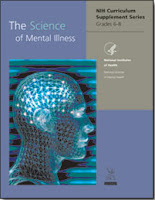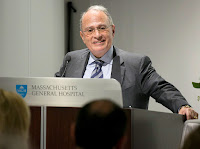As I mentioned in my
book chapter:-
Joseph Biederman, [was] professor of psychiatry at Harvard Medical School and chief of pediatric psychopharmacology at Harvard's Massachusetts General Hospital, …[and] influenced psychiatric practice to the extent that children as young as two years old … [were] diagnosed with bipolar disorder and treated with a cocktails of drugs, many of which are [still] prescribed ‘off licence’. Through Congressional investigations by Senator Charles Grassley, it … [was] disclosed that Biederman received $1.6 million in consulting and speaking fees between 2000 and 2007.
An obituary regarded him as the ‘father of paediatric psychopharmacology’. Johnson & Johnson gave more than $700,000 to a research center headed by Biederman (see NY Times article), which was involved in research on Risperdal, the company's antipsychotic drug, which is prescribed as a so-called mood stabiliser (see eg. previous post).
Klau et al (2023) recently examined patterns of paediatric antipsychotic prescribing in Australian primary care services in 2011 and 2017. Antipsychotic prescribing increased in children and adolescents between these dates and most such prescribing was off-label, with an increasing proportion of off-label prescribing. Almost 70% of these patients prescribed antipsychotics were also co-prescribed other psychotropic medication. The most common diagnosis of children and adolescents prescribed antipsychotics was depression/anxiety, although international studies have found ADHD to be one of the most common diagnoses, and the proportion of ADHD diagnoses in this Australian sample doubled from 2011 to 2017. Antipsychotic prescribing for autism increased in those without the additional feature of behavioural problems, which is required for on-label use. Antipsychotic prescribing has also increased for those with eating disorder, even though off label, maybe because the weight gain is seen as potentially beneficial, particularly by olanzapine.
When I first trained in psychiatry, children and adolescents were seen as having emotional and behavioural problems but diagnosis of mental illness, as such, was uncommon. Medication had a very limited role in the context of family and behavioural therapies. As I wrote in my 2003 article:-
Historically, child and family studies … tended to take a more holistic approach to personal and social problems. The speciality of child psychiatry … served as a haven and opportunity for those who wanted to escape the reductionism of their colleagues in adult psychiatry. It … [is] a pity that the discipline has now been so invaded by the biomedical model.
Despite the efforts over the years of psychiatrists, such as Sami Timimi (see eg. previous post), this biomedicalisation has continued. As far as antipsychotics are concerned, there are potential harms such as weight gain. More fundamentally antipsychotics are at least overprescribed in children and adolescents outside licensed indications. Their use at least needs to be reduced and more critical debate is required about any benefit/harm ratio. Overmedicalisation of children’s mental health problems is not helpful (see eg. previous post). Young people need to be given correct information about mental illness (see eg. another previous post). The cultural process of seeking to create panaceas for emotional and other mental health problems of children and adolescents doesn’t always work and may be creating more problems than it is worth.





